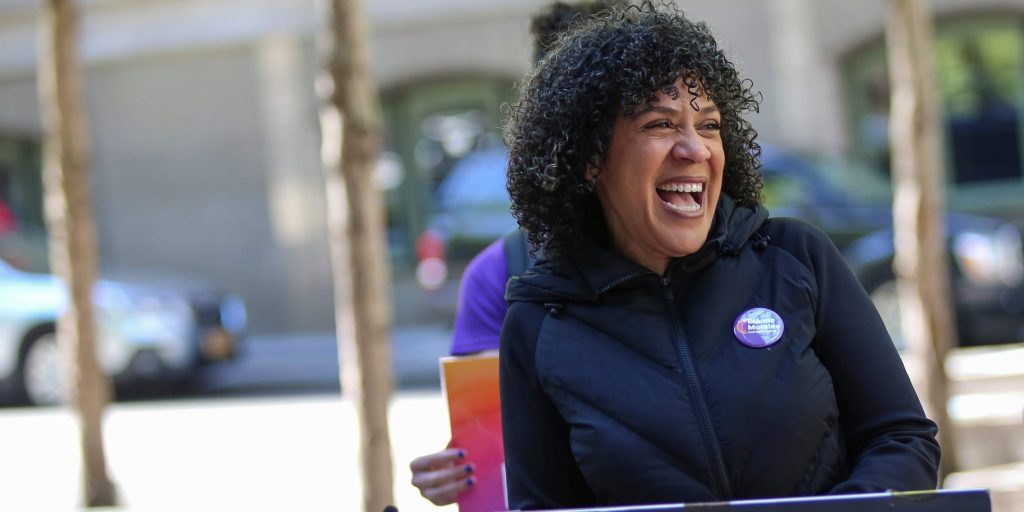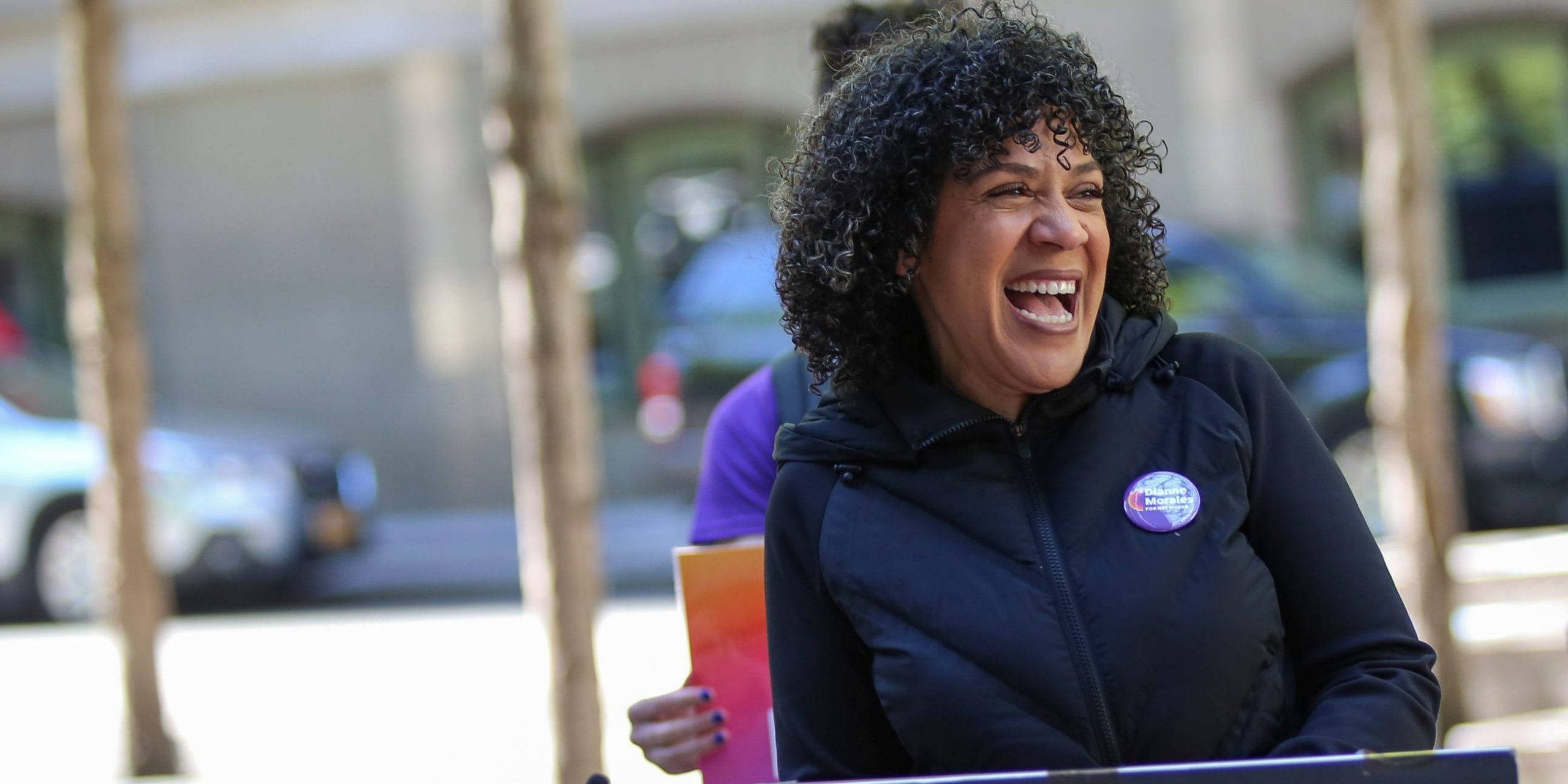
Morales campaign
- Dianne Morales is a nonprofit executive running for New York City mayor.
- She is the only candidate openly campaigning on "defund the police" as a policy and slogan.
- Morales spoke with Insider about how she plans to shake up city government.
- See more stories on Insider's business page.
MANHATTAN, New York – Pacing back and forth to take one last look at her prepared remarks, Democratic New York City mayoral candidate Dianne Morales briefly greeted Spike Lee before taking to a livestream from Zuccotti Park, once the home of Occupy Wall Street.
The backdrop was fitting for the rollout of her "economic justice" plan on Tuesday, but something was off.
Besides the fact that this particular Spike Lee is a Maltese puppy owned by one of her campaign staffers, the energy exuded by Morales and her young team felt out of place in the relatively cavernous and mostly empty Financial District.
In-person campaign events have slowly emerged ahead of the June 22 primary, but the nonprofit executive's event at the heart of New York's power and wealth felt far from normal. Aside from around a half dozen campaign staff and volunteers, only one local TV news crew showed up, and there were few passers by as many of the surrounding offices remain closed.
Morales has been up front with voters that she is not the "safe choice" in the crowded Democratic field, telling Insider on Tuesday that New York's post-pandemic recovery should bring about a new way of doing business with far less deference to corporate interests.
As the only remaining candidate fully embracing "defund the police" both as a policy and slogan, Morales spoke with Insider about her vision for the city and why she believes the controversial slogan is the best way to convey a policy shift she believes most New Yorkers want.
This interview has been lightly edited for length and clarity.
You picked the venue of Occupy Wall Street and called out the conventional economic development system for this campaign event. Before getting into what you're proposing to replace it with, what's been going wrong with economic development under the status quo, and do you think any of it has improved under Mayor de Blasio?
No [laughs]. So I think the way we've been doing economic development actually perpetuates inequities because it's led so much by corporations and corporate profit. And that ultimately does not benefit people and communities, right? Because the biggest priority is the bottom line, despite how it might impact some of our most vulnerable.
So I think that as much as we are dealing with multiple crises right now - it's a really, really challenging time - it's also an opportunity for us to build back in a different way that actually prioritizes the idea of really leveling up for some of our most marginalized communities.
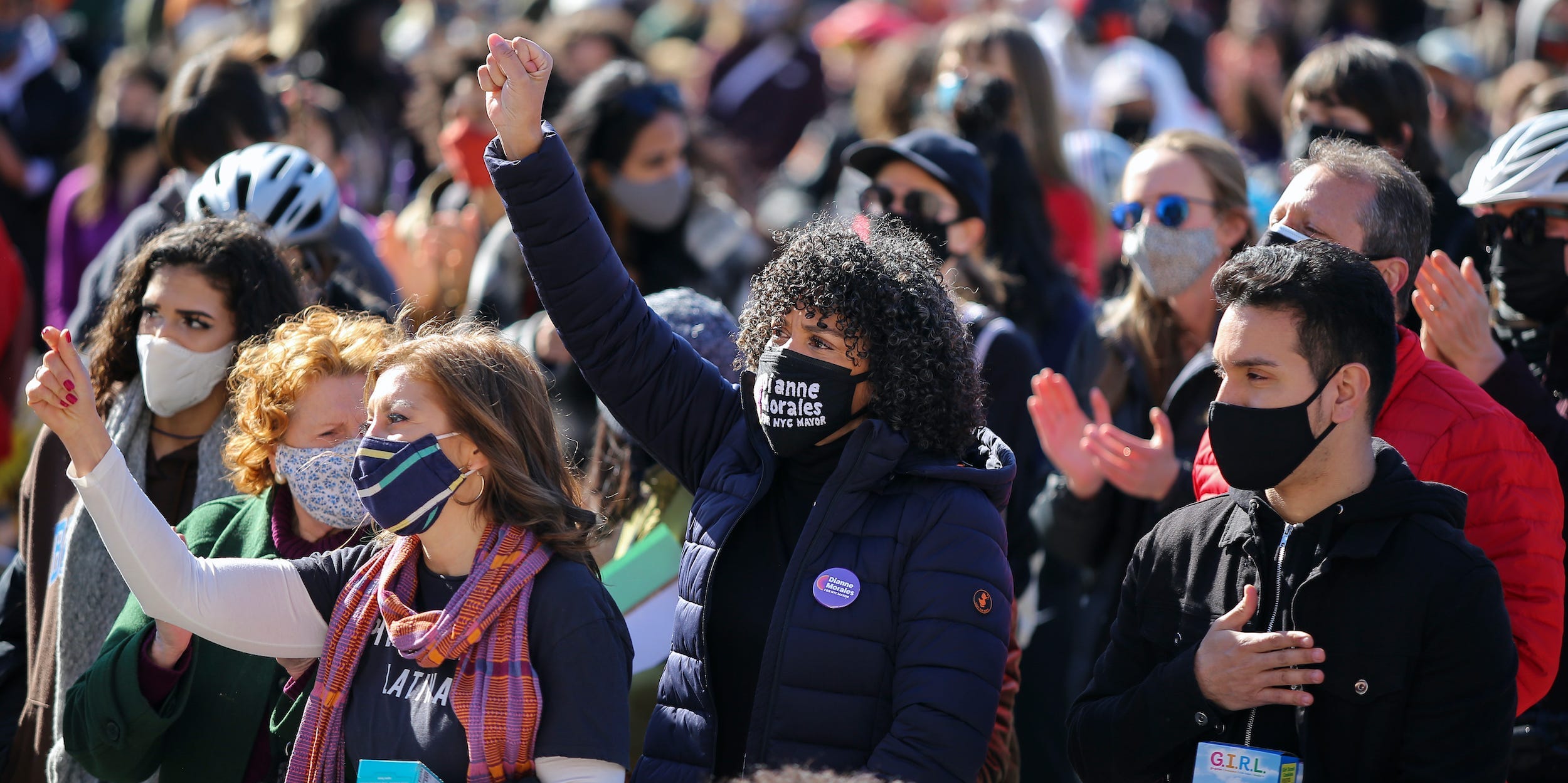
Morales campaign
Can you walk me through how the basics of things like a bidding process would work? Like if person X wants to renovate a building as a mixed use space for their community in one of the boroughs, what would you tell them would be different under a Morales administration?
So there's a couple of things. One is that it's the role that the community and folks on the ground would play, and helping to lead those projects and kind of vet those projects. That kind of stuff I think is critical. They'd kind of be in the driver's seat on that.
The other thing is, there's a lot of things, a lot of sort of innovative ideas in my platform - whether we're talking about green infrastructure, in terms of responding to the climate crisis, or whether we're talking about how we do education. I think that there's a role that the preparations with the public play in potentially helping to sort of pilot certain things and test certain things and research certain things.
And there would also be metrics, right? Metrics around sort of the impact on equity injustice that they would be held accountable to in order to assess the real success of impact of the case.
Would that work in a similar way to how an environmental impact study or something would be involved in an economic development project?
Yeah. I think, again, the sort of equity and justice lens would be the main driver, rather than just sort of an "return on investment" sort of analysis, which is much more traditional. The equity and justice lens, I think, has to be the overarching lens that drives everything forward.
There's a crazy amount of money that's going to be coming into the city from the federal stimulus package [roughly $6 billion in budgetary relief]. What's your understanding of what will be left after de Blasio is out of office, and what are the first things you use the money for?
It's hard to tell with the de Blasio administration, what he's gonna leave on the table, and how it is he's planning for his legacy. But that being said, I think one of the things that's exciting to me about the potential and the possibility with the recovery funds is really kind of jump-starting a lot of the initiatives that are part of my platform. Whether we're talking about education or job creation or the environment, I've actually created a pretty comprehensive plan that speaks to both the environment and job creation, and housing development and infrastructure for the city.
This is a time for us to be actually investing and not invoking the notion of austerity. We really need to actually be investing in kickstarting and jump-starting our city, but doing it in a different kind of way.
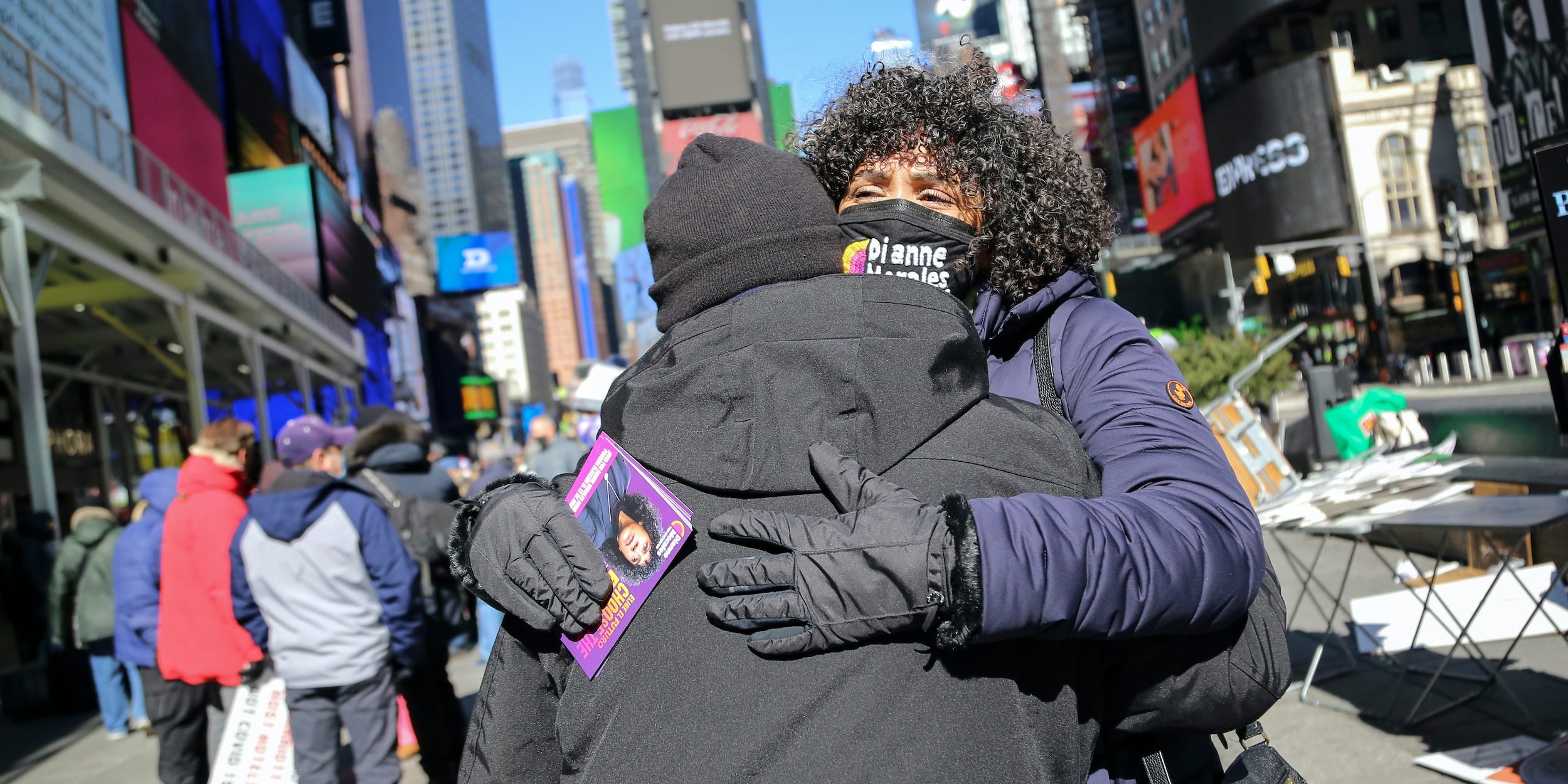
There are other candidates who have talked about wanting to reduce and reallocate police funding, and polling shows that's widely popular. And then it seems like there's this parallel discussion, mostly among Democrats wanting to figure out how they can win more or lose less often, on whether the "defund the police" slogan is effective. Have you reflected at all on that as the main candidate to be in favor of both the policy and the slogan?
It's a good question. Chalk it up to my educator background, maybe. I think that there's something important about demystifying the concepts for people and not letting fear be the driver.
And you know, I think the other thing is for decades, our government has been defunding housing, and defunding schools and defunding healthcare. And no one's had nearly the same reaction that we're having to this conversation. I think it's an important conversation to be able to have, and I'm happy to engage in it with people and really sort of help them understand what it means and what it could look like. But I'm not one to shy away from that, and I never have been, so why start now?
When you hear candidates like Eric Adams say that he talks to regular people every day, and he doesn't hear people of color really saying that, and instead that it's mostly "young white affluent people" pushing the slogan, what's your reaction to that?
My response is a couple of things. One is I've been working on the ground for the last 30 plus years - not as a politician, but as someone who was helping working directly to help improve their lives. I have heard and I have marched and I have organized and I have protested with people from the community who are advancing this notion. So you know, the idea that you can represent or reflect everybody with one sweeping statement is misguided, at best.
I also think that those same folks want a lot of the things that I talk about when I talk about defunding the police, they want additional resources, they want additional services, they recognize what that means for their communities. They just wanna be safe - and what they've sort of been taught, and what I think some of my counterparts in this race kind of feed them, is the idea that safe has to mean policing - and I think it's important for us to demystify and debunk that.
What do you think Adams meant by saying it's mostly driven by young white professionals?
It's a wedge issue, I think. It's a divisive strategy, and it's an us versus them tactic that I think is hurtful to the city. It's hurtful to New Yorkers to position it that way. It also erases the hundreds of young Black and brown activists who have been working on this for a really long time.
Just to be clear, by "us versus them," do you mean the police, or white liberals?
It's a white-Black thing, yeah. I mean, I think by ascribing it to a white liberal thing, it is something that - it's a dog whistle. And I think it's misleading and harmful.
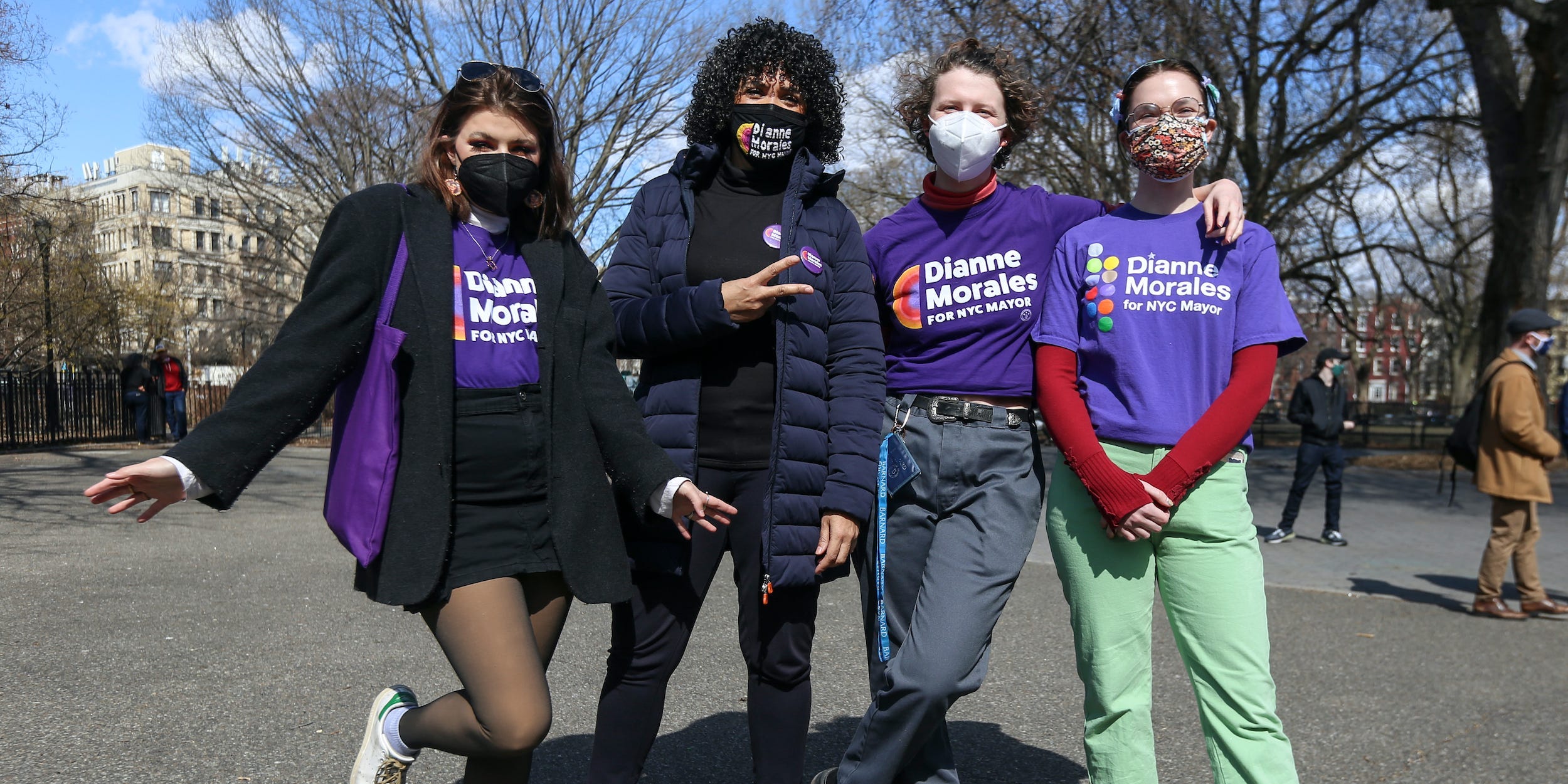
Morales campaign
Because of the recent rocket attacks and people being displaced from their homes during Ramadan, the Israeli-Palestinian debate has become a more central issue in the mayoral race. Yang and Adams have put out statements strongly defending Israel, but without much of an acknowledgment for the Palestinians who have been attacked. How do you see that affecting the race, and do you think that the Palestinian people deserve more of an acknowledgment when these things come up?
Yeah, I think that state sanctioned violence is problematic no matter where it originates. And I think that we need leaders that focus on and prioritize our shared humanity and dignity - of everyone. I tweeted about this the other day, my heart aches for people that are losing family members, and it's never okay. And I wish that we could recognize that and acknowledge it without it being interpreted as anti-anything, it's just pro-humanity.
One last thing - I wanted to ask about your thoughts on Kathryn Garcia getting the New York Times Editorial Board endorsement, and how you approach endorsement season when the women in the race haven't necessarily gotten as much attention as the likes of Yang, Adams, or Scott Stringer.
Honestly, I was happy for Kathryn. I like Kathryn and respect her a lot, so I was just happy for her.
I didn't have any misconceptions about being the person that The Times would endorse. We have a stormy history, at best.
I'm going to get myself in trouble here, but I'm gonna do it anyway. There are also certain people who I certainly was hoping they would not endorse.
Are you going to say who those are?
Nope! [Laughs.]
Okay, we can leave it there then. Thanks so much for your time.

